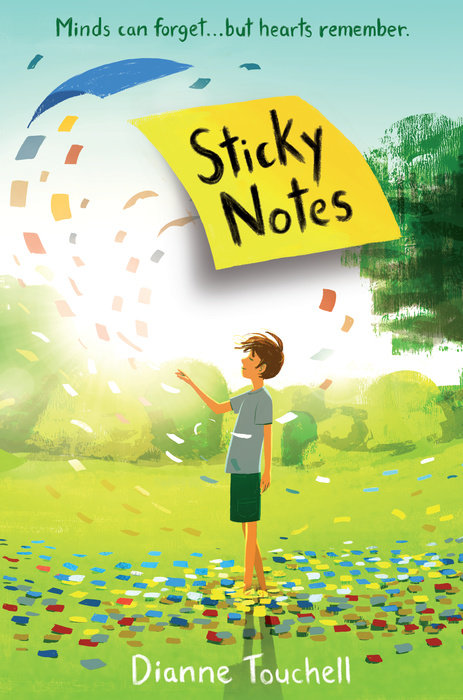Spontaneous Bacon Combustion
Foster smelled it first. A bitter smell like microwave popcorn popped too long. Except Dad wasn’t making popcorn. Dad was making bacon sandwiches.
Foster walked into the kitchen. He could see blue flames licking the sides of the pan; the shiny white enamel blackening; and long, sooty fingers crawling toward the lip. A soupy gloom of darkening smoke rolled up and up until it hit the range hood like a solid mass and spilled into the space above Foster’s head. It formed clouds he could taste.
“Dad?”
Dad wasn’t in the kitchen. You weren’t supposed to leave pans on the stove unattended. That’s what Mom always said.
“Dad!”
Foster wasn’t allowed to touch the stove. He knew how to turn it off, but he didn’t want to get in trouble. He took a couple of steps forward, arced himself up on his tippy-toes, and was suddenly and shockingly backhanded by the whooshing heat of the oil in the pan catching fire. Foster ran from the room as the smoke morphed into a pillar of bright orange.
“Dad!”
Foster ran down…
Spontaneous Bacon Combustion
Foster smelled it first. A bitter smell like microwave popcorn popped too long. Except Dad wasn’t making popcorn. Dad was making bacon sandwiches.
Foster walked into the kitchen. He could see blue flames licking the sides of the pan; the shiny white enamel blackening; and long, sooty fingers crawling toward the lip. A soupy gloom of darkening smoke rolled up and up until it hit the range hood like a solid mass and spilled into the space above Foster’s head. It formed clouds he could taste.
“Dad?”
Dad wasn’t in the kitchen. You weren’t supposed to leave pans on the stove unattended. That’s what Mom always said.
“Dad!”
Foster wasn’t allowed to touch the stove. He knew how to turn it off, but he didn’t want to get in trouble. He took a couple of steps forward, arced himself up on his tippy-toes, and was suddenly and shockingly backhanded by the whooshing heat of the oil in the pan catching fire. Foster ran from the room as the smoke morphed into a pillar of bright orange.
“Dad!”
Foster ran down the hall, instinctively slapping doors ajar, until he got to the last room on the left. Dad was standing at the side of his and Mom’s bed sorting socks from the clean laundry pile. He wasn’t doing a very good job.
“Dad! Bacon!” Foster pulled at his dad’s arm, the smell of smoke indistinguishable from the stinging choke of his panic. It was the smoke alarm that yanked Dad out of his sock daze. He ran to the kitchen, Foster immediately behind him. Foster pressed himself against the pantry door, the relentless squawk of the smoke alarm pulling his breath tighter and faster. Dad clamped the lid on the pan and threw it in the sink. He grabbed a tea towel and started flapping it about wildly, throwing open the kitchen window with such force that it skidded out of the track and cracked as it landed against the frame. Foster slid down the pantry door onto the kitchen floor and squished his ears with his fists. The smoke alarm kept going and going until Dad finally silenced it by stabbing it with a broom handle. Then he slid down to the floor next to Foster.
The wall was black. There were some little blisters in the paint and mucky grease skid marks down the front of the stove and cabinets. The smoke alarm dangled from the ceiling, and splinters of plastic were littered around the discarded broom like flower petals. Foster held Dad’s hand, and their breathing gradually slowed together.
“Mom’s going to be mad,” Foster said.
Hole in the Head
He could no longer remember the first thing his father forgot. It came on slowly, his dad’s forgetting. Like a spider building its web in a doorway. For a while Foster could walk straight through it. He felt it cling to him each time he broke it down, each time he picked the broken bits of it off his face. But then it would reappear in the same place--so fine it was impossible to see unless his eyes were trained on its exact position. Eventually it was like a veil, this forgetting. He could no longer break it; he could only part it to gain a quick peek of his dad on the other side of his lost stories.
His name was Foster Hirum Wylie Sumner, and he was ten years old. His dad told stories. Lots of them. At night before bed, while Foster was brushing his teeth, at the kitchen table, in the car. His dad told stories as if they were real, and long after Foster grew to realize they were just stories, he still craved them. He often asked for his favorite ones to be repeated.
“There are stories in everything,” his dad told him. “They are all around you, waiting to be discovered. You just have to look for them.”
On story day at school, when moms and dads were invited to come to class to read aloud, it was always his dad who came, even though he had a suit job. Hardly any dads came. It was mostly moms in jeans. But his dad would come from work in the middle of the day carrying a briefcase with a lock that popped like a bad knuckle, and inside would be Foster’s favorite books from home. Sometimes his dad would just make a story up on the spot, and even with no pictures everyone was still and quiet, his dad’s voice dusting the room like bow rosin, rising and falling to the rhythm of battle cries, dragons, and triumphant heroes. He would walk around the room while he spoke, using his hands and eyes as punctuation, circumnavigating the clusters of desks while boys’ faces followed like awestruck marionettes. His dad would always kiss him goodbye afterward. Foster wasn’t embarrassed. His dad held more authority in that classroom than the teacher, Mr. Ballantyne, for the brief time he was there. He would shake Mr. Ballantyne’s hand before he left, and all the boys would clap. Foster thought he would burst with the pride of it.
Foster’s dad encouraged Foster to tell his own stories. “Tell stories to whoever will listen, and then listen to theirs,” he would say. Foster liked to tell stories about knights on great quests who would battle bad guys and save ladies, because he knew they were his dad’s favorites. Sometimes they would tell a story in tandem. His dad would stop midsentence and look at Foster with his eyebrows knitted and a pressed-lip smile, and Foster would know it was his turn to tell the next bit. He saw this as great trust. Sometimes his mom would listen and laugh at the funny parts and gasp at the scary parts, but when they asked her to join in, she’d say she didn’t want to spoil the story.
Foster lived inside his head a lot. His dad said this was a good thing, because there was so much to see there. His mom wanted him to join the local soccer team or something.
“Know thyself,” Dad said.
“What’s that mean, Dad? Mom talks about her thighs a lot and she thinks I should play soccer.”
His dad’s laugh was always astonishing, especially when unexpected. He could crack a hole in the air with the bigness of it. It trailed off into snorty giggles before he said, “What?”
“Heard her on the phone,” Foster said. “She’s on another diet.”
“Excuse me,” Mom said. “I’m right here.”
“Maybe you should play soccer, Mom.”
“Knowing thyself,” Dad continued, chuckling, “is about being happy inside your own head. It means not letting other people tell you what stories are right and what stories are wrong. And it’s a wise saying that extends to dieting.” Dad leaned across and curled a wisp of Mom’s hair behind her ear.
Foster was pretty sure he knew himself relatively well. He liked books and toy soldiers and tadpole hunting and the beach. He liked going to school. He liked the routine--the unremarkable sameness of school days with lessons and bells and his best friend, Blinky, to eat lunch with. There were things he didn’t like. He didn’t like asparagus or the smell of dog food or prickly grass under his bare feet. He knew these things as surely as he knew the day his mom had put fresh sheets on his bed and the moment his dad had a new story to tell: just by feel. He was unprepared for how much a change in someone else could wilt the pieces of himself he thought he knew best.
Foster sometimes forgot things--mostly at school, when he was supposed to be remembering. When remembering mattered most. But he forgot things other times too. Sometimes he forgot to flush the toilet or hang his towel up after a bath. Twice he’d forgotten to return a library book on time. It never bothered him when he forgot things, because the things eventually came back, or someone would remind him. His dad called it having a hole in his head.
“Got a hole in your head today, Fossie? Better go find those library books.”
Everyone had a hole in their head sometimes. Foster had thought it would stay the same size, though, not become bigger and bigger until even a reminder could no longer nudge the forgotten thing back into place.
So it began as only a little worry when his dad started to forget things. Foster wanted to ask him about it, but he wasn’t sure what to say. And once in a while there would be a small return of the storyteller, just for a moment, in the car or in the bath, and Foster would think he was being silly and the forgetting had gone away for good.


